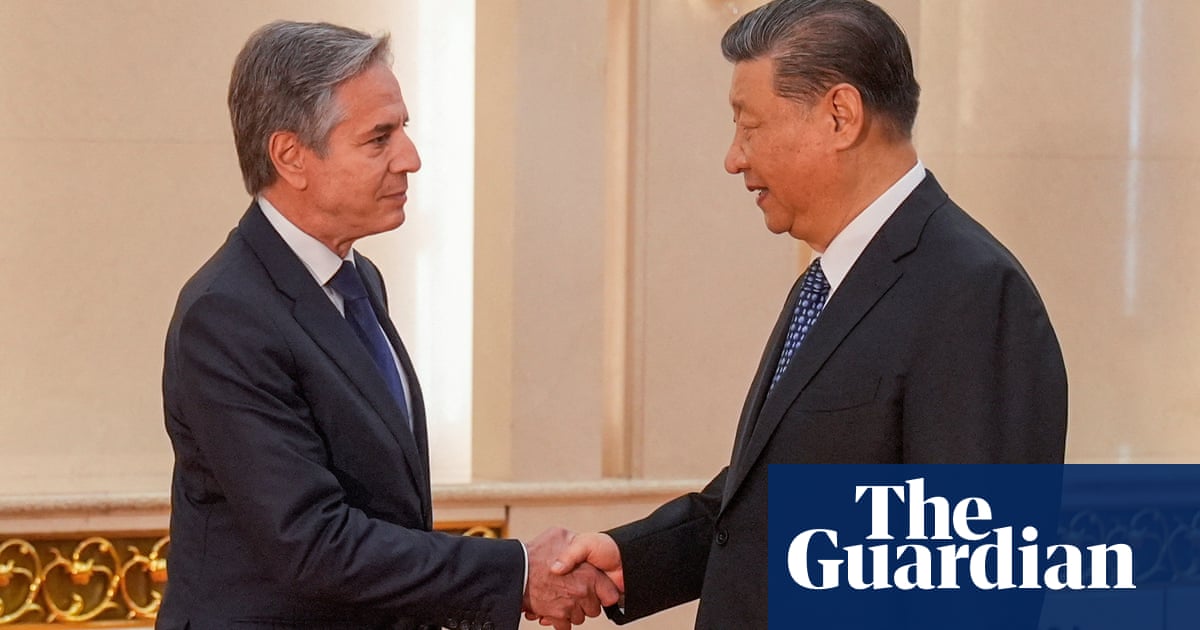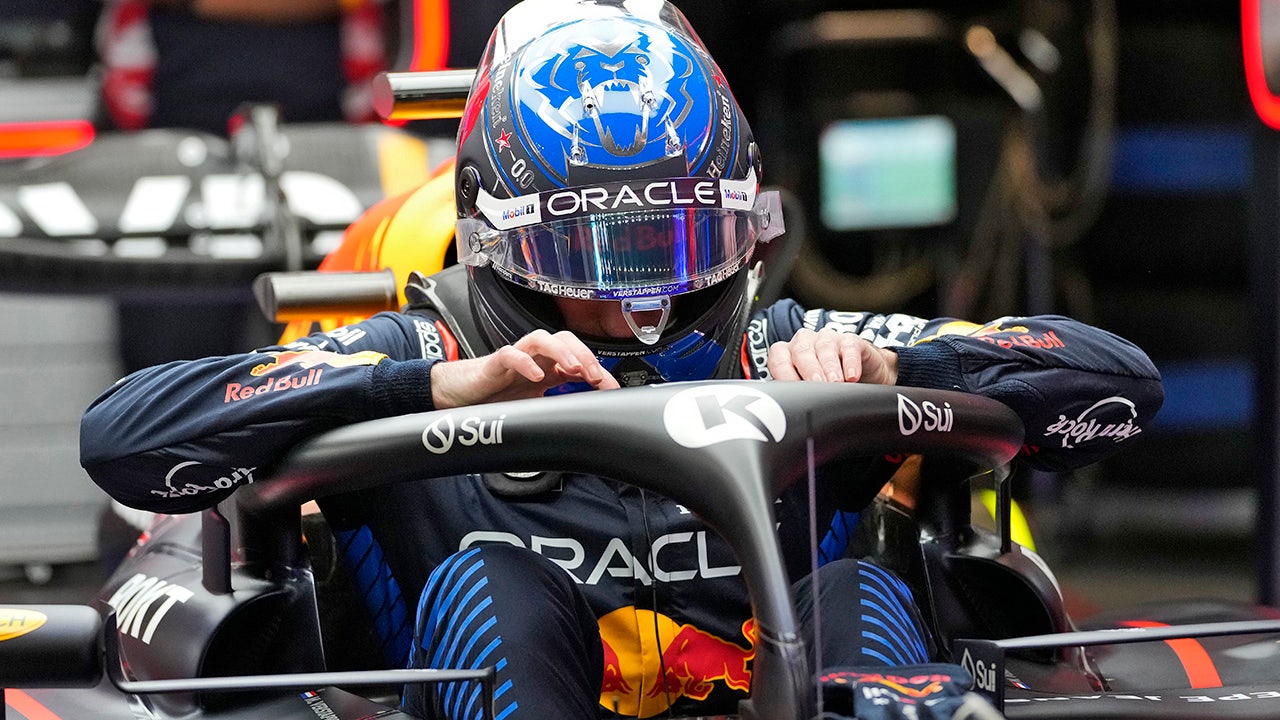World
US has seen evidence of attempts by China to influence election, says Blinken

Washington has seen evidence of attempts by Beijing to “influence and arguably interfere” in this year’s US elections, the secretary of state has said during a trip to China, also warning that Chinese companies face new sanctions if they do not stop supplying material and equipment to the Russian arms industry.
Antony Blinken told CNN that he had reiterated Joe Biden’s message to Xi Jinping not to interfere in November’s vote – a warning that reportedly received assurances from the Chinese president that he would not do so. Asked whether China was keeping to its promise, Blinken said: “We have seen, generally speaking, evidence of attempts to influence, and arguably interfere, and we want to make sure that that’s cut off as quickly as possible.
“Any interference by China in our election is something that we’re looking very carefully at and is totally unacceptable to us.”
There was no immediate response from Beijing on either the accusation of attempts at election interference, nor the warning on sanctions, which Blinken said the US and its allies could impose over China’s support of the Russian defence industry. But earlier on Friday China’s foreign minister, Wang Yi, said “disruptions” could reverse recent improvements in US-China relations and lead to a “downward spiral” of rivalry, confrontation and even conflict.
Speaking to reporters at the end of a three-day visit to China, Blinken acknowledged there had been improvements in relations since a summit in San Francisco in November between Xi and Biden.
He pointed to cooperation on counter-narcotics, the revival of contacts between the militaries of both countries, and he announced the first US-China talks on the security risks of artificial intelligence development, which he said would take place in the coming weeks.
However, Blinken made clear that Chinese support of the Russian defence industry, used to fuel Vladimir Putin’s war of aggression against Ukraine, remained a major focus of disagreement, on which the US and its European allies were prepared to act.
“China is the top supplier of machine tools, micro electronics, nitrocellulose, which is critical to making munitions, and rocket propellants, and other dual-use items that Moscow is using to ramp up its defence industrial base,” Blinken said. “Russia would struggle to sustain its assault on Ukraine without China’s support.”
He said Washington’s Nato allies and G7 partners saw the issue in the same light. “Fuelling Russia’s defence industrial base not only threatens Ukrainian security, it threatens European security. Beijing cannot achieve better relations with Europe while supporting the greatest threat to European security since the end of the cold war.”
He added: “I made clear that if China does not address this problem, we will. We’ve already imposed sanctions on more than 100 Chinese entities, export controls, et cetera. As before, we are prepared to act to take additional measures, and I made that very clear in my meetings today.”
Blinken said China had previously shown it could take “positive action” at a critical moment in Russia’s war in Ukraine.
“You’ll recall that well over a year ago we had concerns that Russia was considering possibly using a nuclear weapon,” he said. “I believe that China’s voice was important, at least at that time, in moving Russia away from that possible course of action.”
Xi, in his own remarks at the start of his meeting with Blinken, did not directly address Chinese policy on Russia and Ukraine. The Chinese president said he hoped the US could look at China’s development in a positive light.
“This is a fundamental issue that must be addressed, just like the first button of a shirt that must be put right, in order for the China-US relationship to truly stabilise, improve and move forward,” he said.
Earlier in the day, Wang had warned the US not to “step on China’s red lines” when it came to its sovereignty and development.
Setting a stern tone at the beginning of a day of meetings, Wang suggested the bilateral relationship was at a turning point. Since the Biden-Xi summit in San Francisco in November, he said, it was “beginning to stabilise”, with increased dialogue and cooperation.
Through an official interpreter, Wang said: “This is welcomed by our two peoples and the international community … But at the same time, the negative factors in the relationship are still increasing and building and the relationship is facing all kinds of disruptions.
“China’s legitimate development rights have been unreasonably suppressed and our core interests are facing challenges,” he said, and then he posed a question: “Should China and the United States keep to the right direction of moving forward with stability or return to a downward spiral?
“This is a major question before our two countries, which tests our sincerity and ability,” Wang added, warning the US “not to step on China’s red lines on China’s sovereignty, security and development interests”.
He asked: “Should our two sides lead international cooperation on global issues and achieve win-win for all, or engage in rivalry and confrontation or even slide into conflict, which would be a lose-lose for all? The international community is waiting for our answer.”
Blinken emphasised the importance of managing responsibly what he called the “most consequential” relation for both countries, to reduce the chance of miscalculation in a volatile region.
“That really is a shared responsibility that we have, not only for our own people but for people around the world, given the impact that the relationship between our countries has around the world,” Blinken said. “It’s important to demonstrate that we’re managing responsibly the most consequential relationship for both of us in the world.”
But he insisted the US would stand up for its interests. He said he had been “extremely clear” in his meeting with Xi about Washington’s concerns over Chinese supplies to the Russian arms industry, and added: “We’ll have to see what actions follow from that.”
As well as the threat of sanctions over Chinese supplies to the Russian defence industry, Washington is considering tariffs in response to what Blinken described as subsidised Chinese manufacturing exports flooding the world market at the expense of US workers.
The Biden administration has also tightened export controls on computer chips critical to AI development. And in a move that has particularly angered Beijing, Washington plans to provide billions of dollars in aid for the Indo-Pacific that would largely benefit Taiwan.
While Blinken was on his way to China, Congress passed legislation that would ban TikTok in the US within a year if its Chinese parent company, ByteDance, does not sell its stake. Blinken said the subject did not come up in his meeting with Xi on Friday.
US officials say there has been relative calm in the Taiwan strait since the Biden-Xi summit, following a period of high tension in which Chinese warships and planes would regularly approach Taiwan. At the same time, however, there has been increasing friction in the South China Sea between China – which claims sovereignty over most of the sea – and neighbouring countries, particularly the Philippines, a US ally.
One of the key topics in the Beijing talks was counter-narcotics cooperation. After November’s summit, China took some steps to curb the supply of chemical precursors and equipment used by traffickers to make the synthetic opioid fentanyl, the leading cause of death for Americans aged 18 to 45. However, there is concern in Washington that the steps taken by Beijing have been token and have yet to have much effect.
Blinken, who was accompanied in Beijing by Todd Robinson, the assistant secretary of state for international narcotics and law enforcement affairs, held a brief meeting with China’s public security minister, Wang Xiaohong, focused on counter-narcotics.
Blinken told the minister: “Our ability to cooperate in this area, to show results, will have a very positive impact on relations between our two countries.”
He said China was “providing information to international law enforcement that can be used to track and intercept illicit drugs and their precursors”, and that the two governments were cooperating to close loopholes in their financial systems that drug traffickers had been using to launder money.
Blinken said there was more to be done, however, calling on Beijing to prosecute those selling chemicals and equipment to traffickers, and to regulate all of the chemical precursors used in the manufacture of fentanyl.










